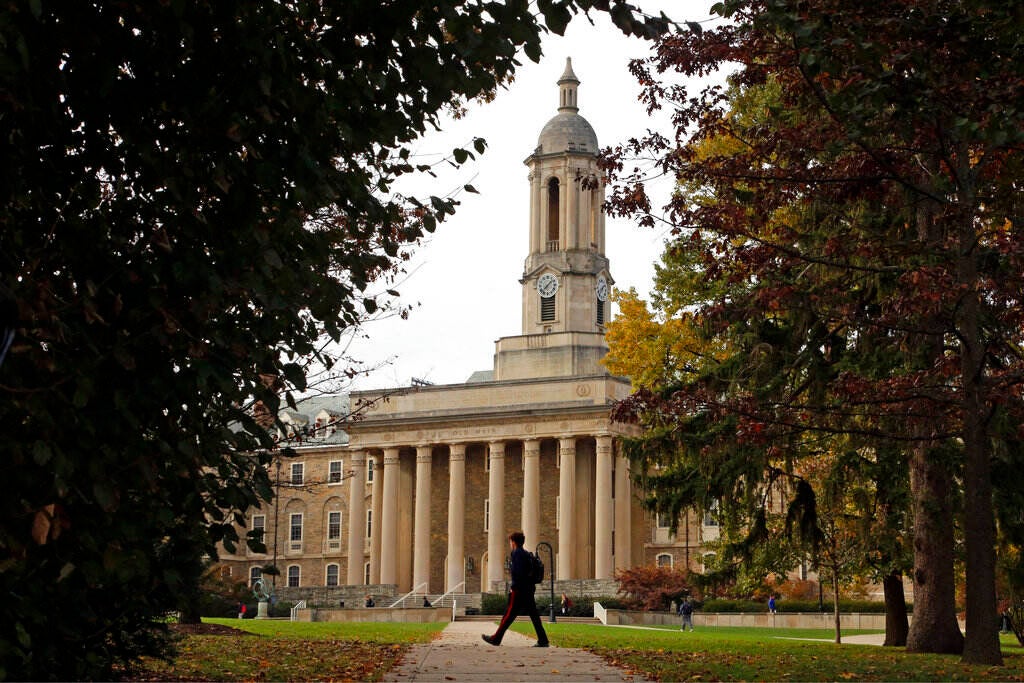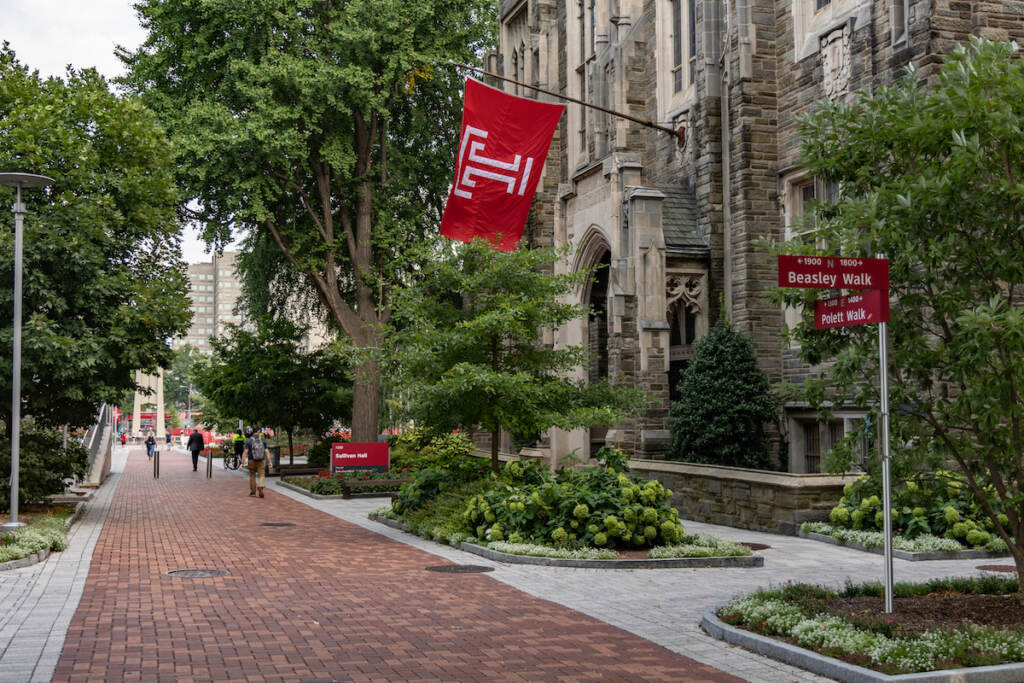[ad_1]
Pennsylvania State Employees Credit Union declined an interview request for this story but submitted a statement.
“We see our extensive partnerships with universities and alumni associations as an avenue to connect with young adults at a critical time in their financial lives, and to continue that connection beyond college,” said Kate Moyer, spokesperson for Pennsylvania State Employees Credit Union. “Our presence on campuses and outreach to alumni groups enables us to expand on our convenient digital-first service model by being right there where those university members are.”
The most lucrative contract statewide for university affinity credit cards is the Penn State Alumni Association which has been under contract consistently between 2010 and 2020. During that period, the alumni association was paid $20 million in royalties by Bank of America’s FIA Card Services. In 2018, there were 46,167 active affinity accounts.
In 2019, the Penn State Alumni Association inked a deal with the Pennsylvania State Employees Credit Union which paid $3 million to the association in 2019 and 2020. There were only 1,075 active affinity accounts on file in 2020. That deal, worth $15 million over 10 years, won’t expire until 2029. The contract explicitly excludes students who have not yet graduated from marketing lists.
Spokesperson Ben Manning from Penn State issued this statement:
“Credit cards bearing the Penn State Alumni Association (PSAA) name are marketed to Penn State alumni, not Penn State students in any way. Proceeds from these affiliations have allowed the PSAA to financially support scholarships at Penn State as well as professional mentoring programs for students and alumni.”

Higher education institutions who participate in affinity credit card deals also reap hefty benefits.
For example, Temple University was under contract with Bank of America’s subsidiary FIA Card Services for a student and alumni marketing agreement each year between 2009 and 2020.
During that time frame, the university was paid $1.2 million in royalties by Bank of America. As of 2020, 1,504 active affinity credit card accounts existed.
The contract detailed the bank was permitted to use the university logo on T-shirts, hats, bobblehead toys and other promotional gifts to individuals for completing a credit card application.
A contract signed in 2014 did not specify whether the bank could market to university students or collect royalties. In 2019, the contract was amended to clarify that the bank would not pay royalties for student credit card accounts and marketing lists would not include students.

In February 2021, Bank of America informed the university that after “a comprehensive review of the program” the bank would not renew the deal and it would expire in July 2021.
But in 2007, before the transparency law was enacted, records show Temple’s agreement did include students and continued to do so until 2013.
Temple junior Aryianna Miller says she’s received numerous offers for credit cards through her credit union.
“I know a lot of college students. In my first semester I had crazy spending habits, whether party, (or) uber, they could swipe now and pay later. A lot of people say they are going to pay later but they don’t. That is a quick way to get into debt and have bad credit.”

She is adamant she doesn’t want to go into more debt by using credit cards.
“A lot of college students don’t know how hard it is to build your credit back up once it’s bad, or how it affects a lot of things when you are an adult. Lack of financial literacy is why they are targeting college students.”

Another university in the Philadelphia region, Villanova University was also under contract with Bank of America and FIA Card Services each year between 2009 and 2019. The university was paid $2.5 million during that decade. In 2019, there were 3,360 active affinity credit card accounts.
Villanova’s contract was explicit that it would not provide the bank with a marketing list of undergraduate or graduate students. The university’s aim was to recruit alumni association members, faculty and staff instead — a list with more than 86,000 names — according to the contract.
“Villanova University did not, and does not, market any consumer credit card products to enrolled students at either the undergraduate or graduate level,” said Krissy Woods, director of public relations for Villanova in a statement. “This includes during the terms of the University’s agreement with Bank of America, which expired in 2020. Villanova has not since entered any such affinity partnership.”
But in 2000, years before federal law discouraged it, Villanova’s agreement did include students. Records show it wasn’t until 2014 that any change was implemented.
The University of Pennsylvania was also under contract with Bank of America and FIA Card Services each year between 2009 and 2018. During that stretch, the university was paid $3.8 million in royalties from the bank for affinity credit cards. At its peak, there were 11,882 accounts in 2009 but that dropped to 6,802 accounts by 2018. The contract detailed that the university supplied marketing lists of employees, alumni, and others to the bank, totaling 125,000 individuals at least 18 years old and older.
The bank was permitted to use the university logo on promotional gifts for individuals who filled out credit card applications, according to the contract.
UPenn’s contract did not explicitly specify whether students could be solicited for credit cards.
“We have not offered a personal credit card since the agreement expired in 2019,” said Ron Ozio, director media relations of the University of Pennsylvania in an email. “Under that Agreement the card was marketed as the Penn Alumni Card, not a student card.”
[ad_2]
Read More: Bank of America was big in Pa. university affinity credit cards
2023-08-30 09:03:56
